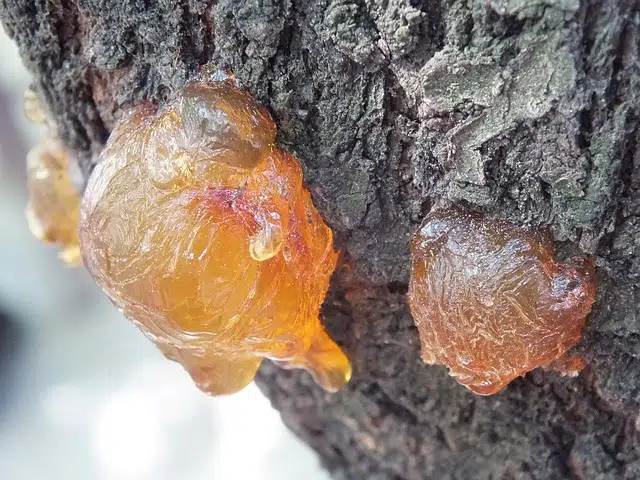
Rosin is a resin obtained from different conifers.
The Greek word kolophōnía came into Latin as colophonĭa . This term is the closest etymological antecedent of rosin , a concept that, in our language , refers to a natural resin .
Rosin arises from the distillation of a substance called turpentine , a juice secreted by various conifers . It is an element that is used in different areas and contexts.
Characteristics of rosin
We said that rosin derives from turpentine. This sticky fluid flows from species such as larch , spruce and pine .
Rosin is a solid resin (it is soluble in essential oils and alcohol, but not in water). It has about a hundred components, although this chemical composition is versatile since it depends on the variety of conifer, the climate and other factors.
Main uses
The uses of rosin are multiple. In medicine , it is used for the development of topical medications, for example.
The cosmetics industry uses rosin to produce numerous products , from lipsticks to hair removal waxes, eye shadows and hair sprays and gels.
Rosin is also used to make waxes and cleaning supplies, as well as adhesives and glues of different kinds. Varnishes, enamels and stains may also include rosin among their ingredients.

The bow of the violin is usually rubbed with rosin so that it can generate sound when passing over the strings.
Rosin on musical instruments
It is important to underline the relevance of rosin in bowed string musical instruments , such as the violin or cello . What you do is rub the resin on the bow so that it rubs the strings properly.
When rosin is not used, the bristles of the bow end up slipping, which means they cannot generate sound . With rosin, however, these strings achieve the grip necessary for the production of sounds.
Experts recommend applying rosin before each concert and even before rehearsals . Although the right amount depends on different issues, it is usually suggested to perform two passes of the resin on the arch.
an allergenic substance
Rosin is considered an allergenic substance : that is, it causes an allergy . Therefore, in some people, it can cause an overreaction of the immune system.
If an allergic subject comes into contact with rosin, they can develop everything from dermatitis to respiratory problems . In certain cases, the immune response is limited to the contact area, experiencing redness and inflammation of the skin with the appearance of itching .
There is no way to reduce sensitivity to rosin in allergic individuals; Therefore, the best treatment is to avoid contact with the resin . It is advisable to consult the components of medications and other products, read the leaflets and notify dentists and doctors about the allergy to minimize inconveniences.
If dermatitis occurs anyway, a health professional may prescribe treatment with emollients and/or corticosteroids . It is never advisable to self-medicate or follow instructions from those who do not lack registration and authorization to practice medicine.
